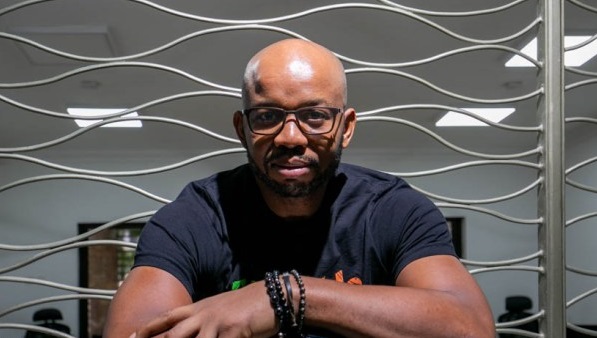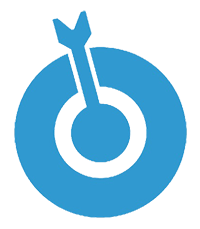AI chat is no longer just about faster answers or conversational tone. Search.com, a division of Public Good, has launched a generative AI search…
The Financial Knight: Uzoma Dozie’s journey from traditional to digital banking


This article is brought to you as part of a new partnership between two of Africa's foremost news and information platforms for African tech startups, Ventureburn and Techpoint Africa.
“The worst day of my professional life was when I received a call from the Central Bank of Nigeria saying that we would lose our FX licence in two hours, I fell to the floor and…”
One fine Monday afternoon, armed with my Techpoint Africa-branded face mask, I drove through light to medium traffic to a building in Victoria Island. I got to the gate and was let into a compound with a beautiful white building.
I was immediately struck by its refreshing and relaxing ambience. And this temporarily distracted me from my thoughts about who I was there to see until the receptionist led me and my crew into his office.
Uzoma Dozie sat in a black swivel chair. In his usual simple manner, he was dressed in a black t-shirt and jeans. He greeted us with a smile and proceeded to show us around his office. The building was a little empty because a lot of his employees were working from home.
Dozie served as the CEO of Diamond Bank, one of the 23 commercial banks in Nigeria, for five years before the merger with Access Bank.
Prior to becoming CEO, he had served in various positions in the financial institution for 18 years. His latest venture, Sparkle, is a digital bank which he likes to call “a lifestyle app”. He believes strongly that rather than make many cash transactions, the future banker will make use of data.
I was curious about why a man who had been at the helm of affairs of one of the biggest banks in Nigeria would decide to set up Sparkle, which, essentially, is a startup at this point.
We talked about his childhood and education, his illustrious banking career and his passions, and of course, Sparkle.
Who is Uzoma Dozie?
My name is Uzoma. I am the first son in a family with five boys. I was born in England in 1969 but soon after, my family moved to Uganda and then back to Nigeria during Idi Amin’s regime.
In 1971 my father, Pascal Dozie, founded the African Development Consulting Group (ADCG), his consulting company.
At the time, we were living in a three-bedroom apartment at 27 Commercial Avenue in the Yaba area of Lagos State, Nigeria. One of the rooms served as ADCG’s office. A while later, we moved to Ilupeju but he retained the apartment and used it as an office.
I attended the Lebanese Community School (LCS), Yaba for a couple of years before transferring to Government College, Owerri, where I spent a year. I then transferred a second time to Command Secondary School, Kaduna where I spent another year.
Security wasn’t an issue back then. There weren’t mobile phones but you could move around without fear. My parents would drop me off at the airport, and my guardian would pick me up in Kaduna regardless of the time I landed. There was more structure and safety then.
How did you start your banking career? Did you study banking in school?
I’ve had a passion for photography since I was 10, but I always wanted to be a doctor — a heart surgeon specifically. In Nigeria then you were either a doctor or an engineer.
It was when we went for an open day at the University of Sheffield, where I was told that I had to spend seven years to become a doctor, that I decided to change my intended course of study.
I later went to the University of Reading where I studied chemistry. After that, I went to the University College London to obtain a master’s degree in organic chemistry.
We worked really hard to develop products that would help fight a number of diseases. That period helped me understand analytical processes.
Upon getting my master’s degree, I didn’t know what I wanted to do professionally. I knew I didn’t want to become a chemist, but I had a two-month stint as a sales representative for a pharmaceutical company in the UK. I decided to relocate to Nigeria.
By the time I came back to the country, my father was the managing director of Diamond Bank. He encouraged me to try banking and promised not to pressure me if I didn’t like it and so I did.
I started my banking journey at Guaranty Trust Bank (GTBank). My father wanted me to gain industry experience, but he didn’t want me to start at Diamond Bank in order to avoid favouritism (as the boss’ son), and he didn’t want to protect me as well, he needed me to find my own feet and fit.
I spent a year at GTBank when Fola Adeola was the managing director. I learnt a lot about developing a great work culture from GTBank.
The bank had a great culture, and I learnt the importance and concept of company culture there. One of the most critical culture lessons I learnt was that there is no right culture, but you have to make your culture work for you. I also learnt that banking is about service to people and how you make people feel.
I once walked into our branch (GTBank) on Broad Street on a hot afternoon — Broad Street is one of the busiest places in Lagos — but the moment I stepped into the bank, I felt the blast of cold air from the air conditioning and heard the soothing sound of music coming from a man playing the piano right there in the bank. And that’s what customer experience is about.
After spending one year at GTBank, there was unrest in the country due to the 12 June 1993 election, so I was out of job for a year. After peace was restored, I went on to work at Citizen International Bank, now Spring Bank, where I was on the oil and gas desk.
That allowed me to travel a lot, especially to Port Harcourt, and I was able to relate with the locals and understand their pain points.
I had a lot of intelligent bosses at Citizen International Bank. They were tough on us but looking back now, I couldn’t have asked for better.
After my time at Citizen Bank, I proceeded to Imperial College in the UK to acquire an MBA after which I joined Diamond Bank upon my return.
Your father is a well-respected entrepreneur, as are your siblings. What is it like coming from a family of entrepreneurs?
I never saw my father much while growing up; he was a really busy man. As an economic consultant, he was always doing feasibility studies and market research. And since phones weren’t commercially available then, we only got to talk to him once in three weeks.
One vivid memory I have of him is how we would sit outside the house when it was dark and there wasn’t electricity, and he would tell us stories.
We are very entrepreneurial in our family. We address each other on a first-name basis. My father is PGD while my mother is Chinyere. There is respect, but there is no hierarchy.
I’m the oldest sibling but still equal to my youngest brother. We learnt a lot about decision making, speed, and risk from our parents. I remember how my father took an early bet on MTN Nigeria and I don’t need to tell you how successful it is now.
We are all in the retail and digital business, but the passion for the retail industry has always been in the family. Diamond Bank started to bank the retailers and Sparkle is taking that mission to another level.
There were rumours about the merger/acquisition deal between Diamond Bank and Access Bank, what can you tell us?
The Diamond-Access merger was smooth. Herbert Wigwe and I did roadshows to answer as many questions as possible.
The Diamond Bank investors were happy about the deal they got. The deal was a sweet deal for our investors; they moved from a tier II bank to a tier I bank.
As a former CEO of a traditional commercial bank in Nigeria, why are you building a digital bank?
At my last job (Diamond Bank), it took us 20 years with 400 branches to acquire five million customers. But in just three years with only mobile, we have tripled that. I’m betting on digital because we can get more done without guessing.
Banking has always been about trust; depositing your cash and leaving the banking hall requires trust. But the bank of the future will bank data and not cash.
I have played in a space where I help people save their money, but now we are planning to do more and help protect their data.
That’s where I want to be, and that’s what Sparkle is doing.
What is unique about Sparkle?
Sparkle is a digital platform that is customer-centric. We have realised that people don’t just want to save money, [they want to] make the right decision with money and that’s where we come in.
We are a platform [that] wants to help people do more than banking.
[We want to help you] pay your children’s school fees, buy your next flight ticket, subscribe to your favourite music or movie platforms, pay your cable TV bills, file your tax returns, and anything you want to do without stress. We are also an ecosystem for retail businesses. We have the right structure, we are experienced, and we have the right partnerships.
One of the places where digital banking fails is customer service, how are you going to deal with that?
We built a bot in the app called Indy. Indy is a chatbot that provides all the information you want in real-time, so we have taken care of customer service with that.
Now that you are entering 2 of your brothers’ space, fintech, how do they feel about that?
My brothers and I compete and collaborate. We love a market where competition is good because healthy competition brings good value.
The market is very big, I can’t provide all the services for the market and neither can they. My message is different from theirs, but as much as we compete we also collaborate, because the goal is to make each other better. In the end, we need a healthy market and that’s all that matters.
Diamond Bank was one of the most technology savvy banks in Nigeria. Did you poach any of its staff to join you at Sparkle?
I didn’t take people from the bank because bankers see the world differently, and I’m not building a banking app. However, I worked with the Vanso team — acquired by Interswitch — that helped us design the mobile app at the bank.
Our developers have experience from different industries, but we didn’t poach developers from Diamond Bank.
Do you think more prominent players in traditional banking will move or invest in digital banking platforms?
I believe some of them are already playing or supporting some of the existing digital platforms. We need more healthy competition, so they are all welcome.
As CEO of a commercial bank, how did you deal with the wrong/harmful stories written about you?
There have been many stories. You don’t expect people to know everything going on, but the most damaging one was the Diamond-Access merger.
We didn’t know if it was external, internal, or the competition. There were stories that the Dozie family had done a shady deal with Access Bank and they were going to rip-off the shareholders.
The stories came out before the news about the merger was announced, so it was hard to tell our side of the story. We just focused on making our customers, staff, and shareholders happy.
So for bad stories, there is little to nothing you can do about them. It’s better not to do anything because there’s no substance to such stories.
Tell us about your worst professional day
The worst day of my professional life was when we had a challenge with our FX (Foreign Exchange) at Diamond Bank. We had an obligation to the Nigerian National Petroleum Corporation (NNPC) that we couldn’t meet because of the economic crisis that led to a shortage of dollars.
I got a call from the Central Bank of Nigeria (CBN) saying that our FX licence would be revoked in two hours and we wouldn’t be able to make FX transactions. We were one of the top five trade banks in Nigeria and at the thought of my most profitable customer not having access to dollars, I fell to the floor in my office as I considered what I was going to do.
What would I tell the management, the shareholders, the staff, and the customer? I had to decide within two hours and I had to show the team a sign of strength. That was the moment I realised that I must always be calm, I have to know that difficult things happen, and it is what I do afterwards that matters.
How did you handle it?
I took my mother’s advice and approach: be transparent. My mother taught us to be open; if you fail, don’t hide it. She would tell everyone, “Look at my son, he failed in school” and that would kill all the rumours. Transparency removes uncertainty, so you own the story.
I went to the management and the staff, we communicated with the customers, and managed our relationship with them. Since we never resolved the issue, we decided to focus on retail and shift direction from corporate customers.
What advice will you give a CEO or an entrepreneur leading a team or running a company?
Be transparent, communicate with your team (communication is key), and be customer-centric.
The original version of this article appeared on Techpoint Africa on 18 June. See it here.
Featured image: Sparkle founder Uzoma Dozie (Supplied)

